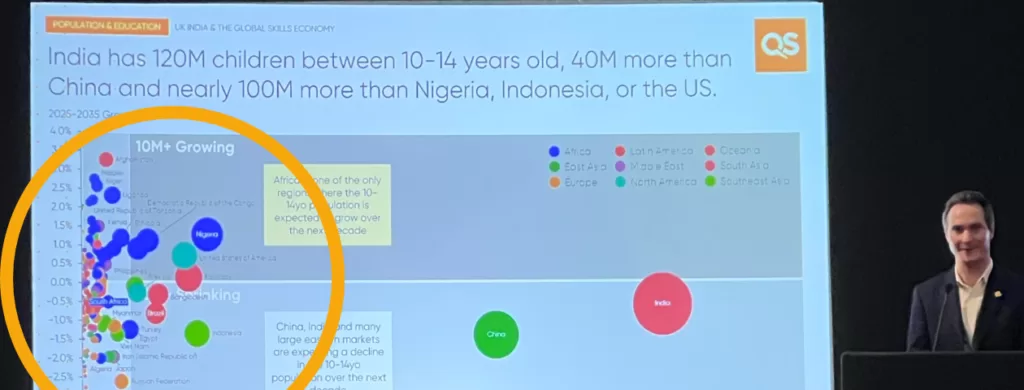
Since long before the global university ranking movement emerged in 2003, academics, university leadership and government officials have debated the impact of university rankings. Marguerite Clarke, formerly of Flinders University in South Australia did some good work focused on the US News ranking, looking at matters such as access – this is summarised in an article she supplied for our website here.
The point is, that independently of anyone’s opinion on their individual characteristics, rankings are having an impact on higher education policy and decision making around the world and, according to a study recently completed by the Institute for Higher Education Policy (IHEP), much of this impact is (cautiously) positive.
Their press release provides an independent viewpoint, so I have included the full text:
GLOBAL RANKING SYSTEMS MAY DRIVE NEW DECISION MAKING AT U.S. HIGHER EDUCATION INSTITUTIONS
Examination of Four Countries with High-Profile College Rankings Suggests Institutional Practices May Improve Through New Approaches
Washington, D.C., May 21, 2009—The ranking of higher education institutions is steadily growing into a global phenomenon—currently more than 40 countries have ranking systems, in addition to several international rankings that compare institutions across national lines. With this proliferation, many campus stakeholders question the goals, uses, and outcomes of these systems. However, it is also important to understand the ways institutions are using rankings to inform their work and to consider how the institutional use of ranking systems in other countries can inform practices in the United States.
Based on interviews with key institutional stakeholders in four countries—Australia, Canada, Germany, and Japan— the Institute for Higher Education Policy (IHEP) examines ranking systems and their impact on the policies and practices at colleges and universities. In its new issue brief, Impact of College Rankings on Institutional Decision Making: Four Country Case Studies, IHEP explores the nuances and unique approaches in which rankings could prompt institutions to work in innovative ways.
“At a time when institutional accountability, assessment, and data-driven decision making pressures are at a high both in the United States and abroad, this report provides a useful framework for considering how rankings add to and distract from institutional improvement efforts,” said IHEP President Michelle Asha Cooper, Ph.D. “It is our hope that institutions will consider the strategies used in other countries to reexamine the positive and negative ways rankings are influencing their own work.”
Although valid criticisms of rankings were offered in this issue brief, it highlighted a number of findings on how institutions have explored new ways of doing work. In many cases, rankings can trigger a shift of institutional resources for such productive uses as faculty profile, research collection and analysis, and student learning outcomes. These changes can also be integrated into broader strategic planning initiatives to change national and international higher education policy contexts.
HOW RANKINGS MAY LEVERAGE NEW INSTITUTIONAL DECISION MAKING
- Improved data-based decision making. Rankings can prompt institutional discussions about what constitutes success and how the institution can better document and report that success.
- Increased participation in broader discussions about measuring institutional success. Rankings can encourage institutions to move beyond their internal conversations to participate in broader national and international discussions about new ways of capturing and reporting indicators of success.
- Improved teaching and learning practices. While the case study institutions continue to point to their changing practices that alter input indicators—increasing selectivity, favoring research over teaching, and strengthening the faculty profile—a number of institutions are also reporting changes to practices directly related to student learning and success.
- Identification and replication of model programs. Institutions should be open to using rankings to identify and share best practices.
The report raises cautions, though, about the negative impacts of rankings and urges institutions to work to mitigate these impacts. Chief among the negative outcomes was the potential for rankings-influenced decision-making to undermine college access for disadvantaged student populations. Other concerns included:
- Creating an unbalanced emphasis on research over teaching;
- Widening the ratio between full-time and adjunct faculty;
- Substituting the improvement of key rankings variables for comprehensive, institution-generated strategic planning; and
- Increasing the funding of world-class institutions at the expense of institutions that further other national goals.
The Impact of College Rankings on Institutional Decision Making: Four Country Case Studies issue brief is the second publication in a three-part series on national and international ranking systems. In April 2007, IHEP released the first monograph, College and University Ranking Systems: Global Perspectives and American Challenges, to highlight the ongoing global phenomenon of college and university ranking systems and the urgent need for constructive dialogue about rankings. The remaining and final publication will review the potential impact of college rankings on state and federal policymaking in the United States. Additionally, an “online clearinghouse” on rankings systems was created by IHEP to support its work and provide useful information to a variety of audiences.
IHEP’s focus on national and international rankings is being supported by Lumina Foundation for Education, an Indianapolis-based private foundation striving to help people achieve their potential by expanding access to and success in education beyond high school. For more information about IHEP, visit the organization’s Web site at www.ihep.org.
###
THE INSTITUTE FOR HIGHER EDUCATION POLICY (IHEP) IS AN INDEPENDENT, NONPROFIT ORGANIZATION THAT IS DEDICATED TO INCREASING ACCESS AND SUCCESS IN POSTSECONDARY EDUCATION AROUND THE WORLD. ESTABLISHED IN 1993, THE WASHINGTON, D.C.-BASED ORGANIZATION USES UNIQUE RESEARCH AND INNOVATIVE PROGRAMS TO INFORM KEY DECISION MAKERS WHO SHAPE PUBLIC POLICY AND SUPPORT ECONOMIC AND SOCIAL DEVELOPMENT. IHEP’S WEB SITE, WWW.IHEP.ORG, FEATURES AN EXPANSIVE COLLECTION OF HIGHER EDUCATION INFORMATION AVAILABLE FREE OF CHARGE AND PROVIDES ACCESS TO SOME OF THE MOST RESPECTED PROFESSIONALS IN THE FIELDS OF PUBLIC POLICY AND RESEARCH.



